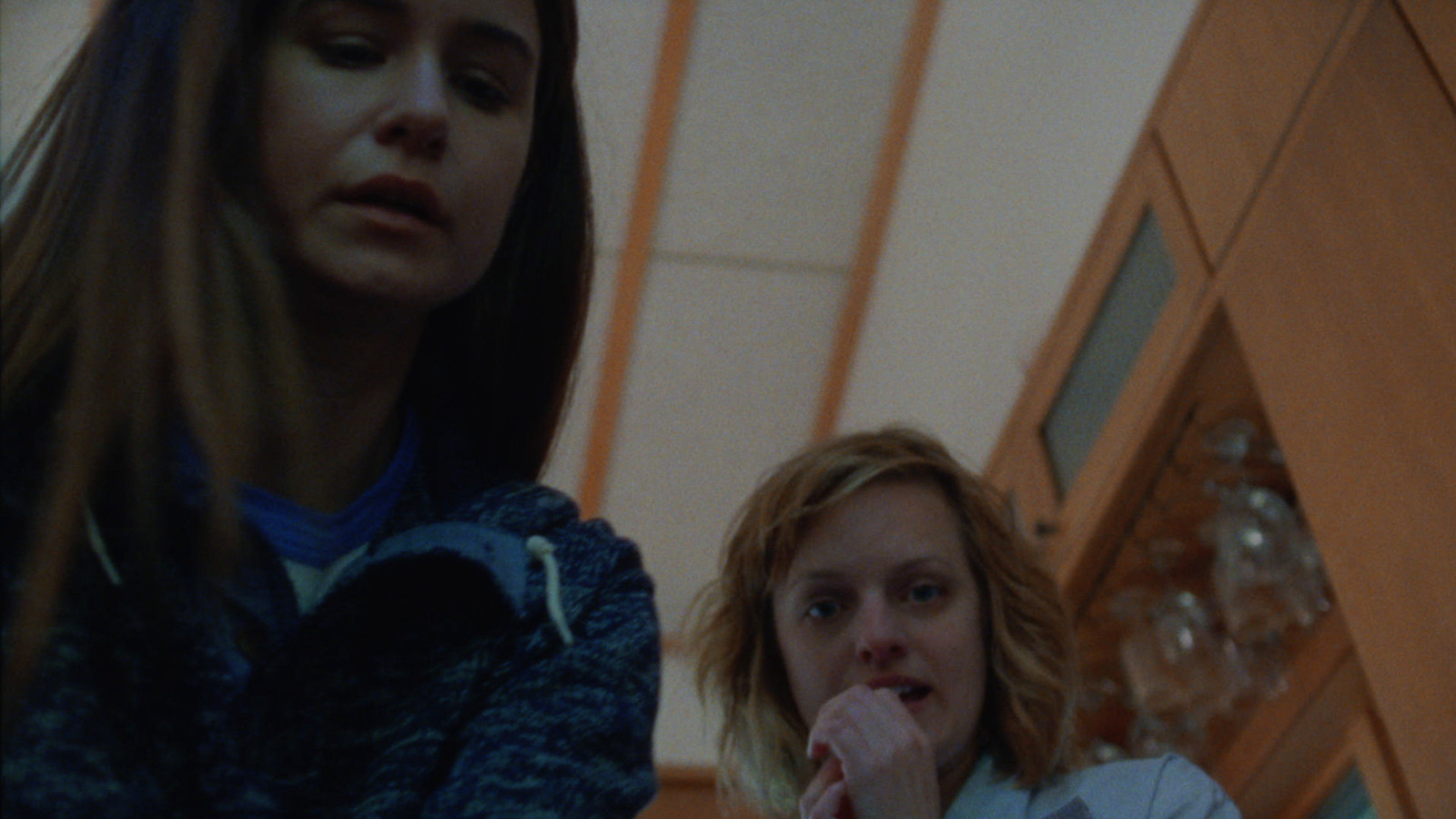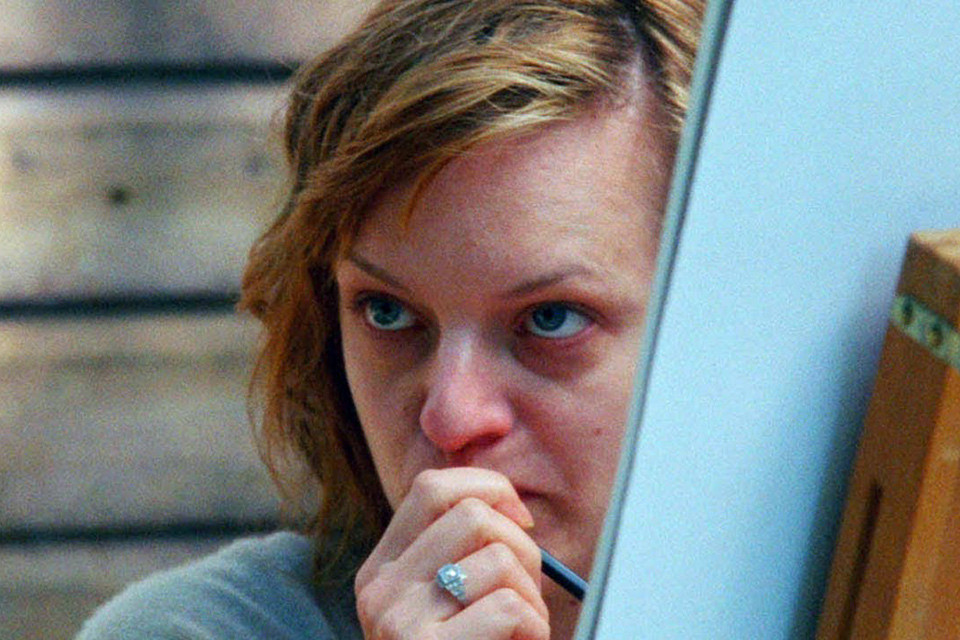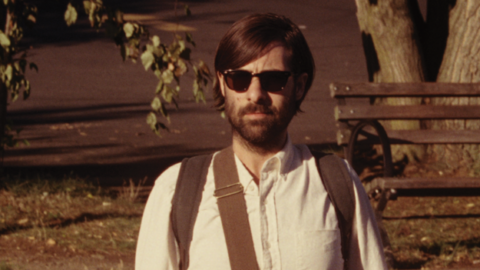
Review: Queen of Earth
Few character types are as enduring or dubious as that of the hysterical madwoman—the lovesick Ophelia who’s let herself go and lost the plot. With his fourth feature, writer-director Alex Ross Perry doesn’t go against or around the type, he drives directly toward it. Eschewing any build-up to a breakdown for his heroine, the sheltered young artist Catherine (Elisabeth Moss), his story opens with the moment of her meltdown. Via an extended, harshly lit close-up, she rages through a mask of mascara-streaked tears while her boyfriend, James (Kentucker Audley), dispassionately dumps her. Then the title appears in florid script over her pitiable face, adding insult to her injuries, and an expectation of darkly reflexive irony to the proceedings.

In contrast to last year’s polyphonic comedy Listen Up Philip, with its novelistic sweep and undercurrent of sincere grief, Perry’s latest is more like an exercise in cinematic gamesmanship, with best frenemies Catherine and Ginny (Katherine Waterston) as the pawns, and Sixties and Seventies psychological thrillers as the rulebook. Rattled by the breakup, as well as the recent death of her art-star father, Catherine retreats to Ginny’s family lake-house to paint, mope, and unravel. Ginny offers some measure of sympathy, but she also permits her next-door neighbor/fuck-buddy Rich (Patrick Fugit) to drop in and antagonize Catherine, seemingly as payback for letting James invade their idyll the previous summer. Thanks to subtly interspersed flashbacks, the film destabilizes the chronology as well as the line between perception and reality, but a backbeat of begrudged malice, courtesy of Perry’s acidic dialogue, keeps us attuned to the petty discontents of the young and privileged.
Catherine and Ginny reflect and repulse each other in equal measure, and the camera toggles between them, suggesting an openly hostile version of Persona, while Catherine’s belligerent paranoia evokes early, clammy Polanski. Yet the film’s formal and textual pleasures tend to exceed its emotional ones. A scene in which Catherine nightmarishly envisions party guests as grabby zombies grooves so hard on Rosemary’s Baby that her traumatized POV gets lost in the viewer’s thrill of recognition. The metatextual resonance is strong; the empathy elicited for the character is not.

What happens in Queen of Earth largely matters less than how it happens. The entire film feels like a red herring for something else. Tension and dread are summoned wholly through canny technique—DP Sean Price Williams’s queasy zooms and claustrophobic framings, Keegan DeWitt’s discordant score, Robert Greene’s opportunely arrhythmic edits, and Moss’s mercurial mugging, which is somehow both underscored and troublingly illegible. She’s playing a madwoman familiar with the type, a 21st-century gal who opines about the nature of depression while also suffering from its effects. Catherine knows that her erratic behavior unnerves Ginny, a situation she seems capable of exploiting if not really controlling. When she ends a withering, even-toned takedown of Rich at the dining table, Ginny instinctively puts her hand over the knife between them—no one, Catherine likely included, knows how far she’s capable of taking this.
The question ceases to be when or whether she’s being sincere, but if the elusiveness is its own kind of madness. Catherine is a girl who may be crying wolf—dodgy territory for a male filmmaker, but Perry characteristically embraces it—except that the wolf is always around anyway, lurking behind every petty, narcissistic exchange. Such self-conscious machinations don’t exactly endear us to the character, but Moss animates her so fully and fearsomely that it hardly matters. The same could be said for Perry’s filmmaking, which seems content to pull strings from afar before yanking you in close through the conviction of its craft. The film would be nothing but a hollow exercise if its hollowness weren’t so hauntingly precise.






